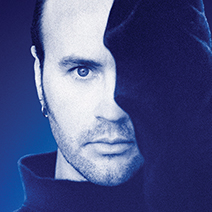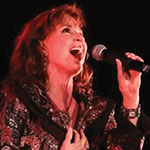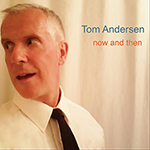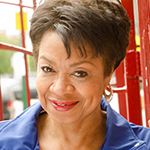Desmond Child
Feinstein’s/54 Below, NYC, March 1, 2018
Reviewed by Randolph B. Eigenbrode for Cabaret Scenes

Even though he was greeted to rapturous fanfare (after a 38-year NYC absence), Desmond Child meekly negotiated the trail that leads from the back of the showroom to the stage. Writing mega-hits for some of the music industry’s biggest acts over the last four decades warrants Child a measured step and, moreover, a savant-like dynamic. Rather than kicking off with an raucous anthem worthy of Bon Jovi, Cher or Katy Perry (all of whom, among others, have had Top 10 hits he’s penned), Child opened with the subdued “The Man Who Sends Me Home” (Laura Nyro)—establishing the bohemian vibe for the evening.
There was a rough-around-the-edges and casual quality to Child’s show, almost recalling those notorious industry showcases that you seem to only read about in vintage record-biz non-fiction. Employing three singers to handle most of the stratospheric vocals—Markem Slade (looking like the kind of guy your mother warned you about), Tabitha Fair, and Chaz Shepard—the songwriter presented the obvious gems: “You Give Love a Bad Name” (Child/Jon Bon Jovi/Richie Sambora); “Dude Looks Like a Lady” (Child/Steven Tyler/Joe Perry); “I Hate Myself for Loving You” (Child/Joan Jett); and a four-song medley of Ricky Martin’s greatest hits, bon-bons shaking aplenty, to name a few.
But the moments that Child was down center proved most engaging. The backstory tidbits piqued interest in what would otherwise be “musical jukebox” selections, and the reunion with late 1970s band Rouge, last seen at Reno Sweeney’s, gave the night an intimate insight. The smooth blend among the four incredibly different voices of Rouge seems to be grounded in love, and their quiet connection runs in opposition to the typical rock Svengali you might assume Child to be. Instead, these simpler, less raucous moments highlight unexpected emotional complexities in the lyrics.
Child deftly presented a moderato “Living on a Prayer” (Child/Bon Jovi/Sambora) and this gentler approach found sympathy for a love-strained couple grasping for hope. Moreover, a heartfelt tribute to friend George Michael with his “Fast Love,” also slowed down and spare, dripped with an insatiable insecurity at conflict with a brash come-on.
And the muted finale, “Ray of Hope,” in memory of close friend singer/songwriter Don Paul Yowell (who wrote the song), recalled both Joni Mitchell and Laura Nyro with their impressionistic lyrics layered over a hotbed of emotions.
(Sensational.)
An unlikely connection indeed occurs at the end of the evening. Nyro, whom he speaks of as inspiration, suddenly draws palpable parallels to Child. Both unexpected stars, outsiders in a way, who shared one dream: to express stories and music for the masses. And after this 16-song set, Child’s legacy—like hers—can not be denied.




